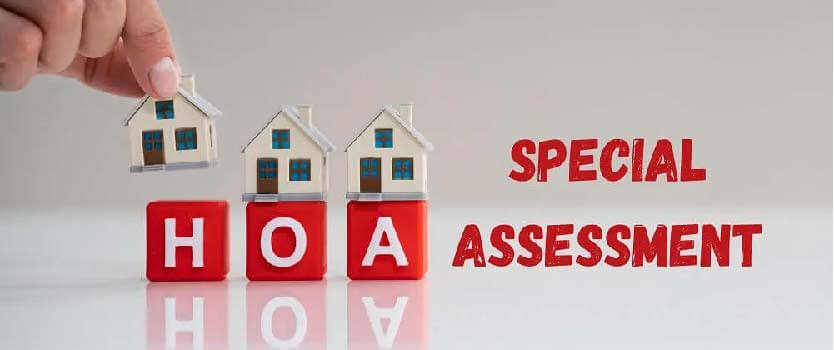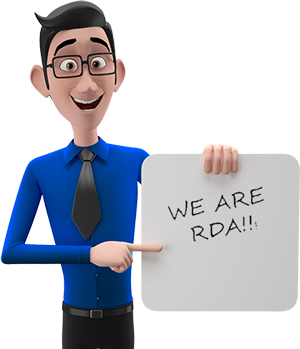Homeowners associations (HOAs) play a vital role in maintaining community standards, but sometimes residents face unexpected financial demands. Special assessments can generate confusion and concern among homeowners as they often come with significant financial implications. Understanding the intricacies of special assessments is essential for anyone living within an HOA-managed community.
Special assessments are additional fees charged by an HOA to cover unexpected expenses or specific projects that exceed the regular budget. They are typically implemented to finance repairs, upgrades, or improvements that benefit the community as a whole. While they are a necessary financial tool for many communities, it is crucial to grasp the reasons behind these assessments and the legal framework surrounding them.
In this article, we will answer common questions regarding HOA special assessments, including their purpose, financial impacts, and how homeowners can navigate the process. Additionally, we will explore best practices for managing these assessments within communities, helping residents make informed decisions and understand their rights.
What are HOA special assessments?
HOA special assessments are additional charges levied on property owners in a homeowners association (HOA) for specific purposes beyond the scope of regular dues. These charges are implemented to fund necessary projects or urgent repairs when the association’s reserve funds and annual budget fall short. Expenses covered by special assessments can range broadly, from emergency fixes to substantial community enhancements such as refurbishing swimming pools or replacing roofs and updating landscaping.
The limit to which an HOA can impose a special assessment may differ by region, with certain states like Texas capping it at five percent of the yearly budgeted gross expenses. Due to these potential financial obligations, individual homeowners are advised to plan ahead and save preemptively for any unforeseen costs arising from special assessments. This proactive approach helps maintain personal fiscal stability while ensuring community-wide needs are met efficiently.
It’s important for members to familiarize themselves with their HOA’s policies regarding special assessments, which are often decided in board meetings. These assessments are critical for the maintenance and improvement of common areas, supporting the overall value and living experience within the special assessment district.
Why are special assessments implemented?
Special assessments are additional charges implemented by homeowner associations (HOAs) when unexpected expenses surpass the limits of the regular budget or reserve funds. They are crucial for financing unforeseen yet necessary costs, such as major repairs or essential maintenance that are vital for the community but not accounted for within the annual budget. These fees are levied on individual homeowners to collectively cover the financial shortfall.
The rationale behind levying a special assessment often stems from the need to address immediate capital improvement projects or major structural issues—such as fixing roads, upgrading swimming pools, or repairing community buildings—that go beyond minor repairs. If the reserve fund, which is intended to support such expenses, is inadequate due to poor financial planning or reserve studies not being conducted regularly, the HOA board must resort to special assessments.
Procedures for implementing these fees are detailed within the HOA’s governing documents, ensuring transparency and that property owners are informed about the necessity for this additional charge. By conducting proper reserve studies and maintaining regular contributions to reserve funds, HOAs can mitigate the need for special assessments, emphasizing the importance of financial foresight and routine maintenance to avoid posing an unexpected major expense to homeowners.
What legal considerations surround special assessments?
Legal Considerations Surrounding Special Assessments for HOAs
Special assessments are subject to a framework of federal and state laws, with nuances varying across jurisdictions. These laws dictate crucial aspects such as homeowner voting rights and the requisite transparency during the assessment process. Essentially, they ensure that any additional charges enforced are in compliance with pre-established guidelines.
Homeowners associations (HOAs) must also adhere to their own governing documents such as bylaws and CC&Rs, which provide a detailed outline of the rules and protocols for enacting special assessments. These internal regulations are tailored to the specific needs of the community and cover the procedures for imposing additional charges for capital improvements or major repairs.
To ensure legality, it is critical that all actions taken for implementing a special assessment adhere to the stipulated legal and regulatory requirements. For instance, California law caps special assessments at 5% of an HOA’s budgeted gross expenses for the year. Overstepping such legal confines can have serious implications.
While property owners do retain the right to contest special assessments, they must weigh the risks involved, including potential legal expenses. Challenges need substantial grounding, as assessments deemed reasonable and within the bounds of the HOA’s governing documents are likely to stand.
How do special assessments impact homeowners?
Special assessments can notably impact homeowners within a community governed by an HOA. These are additional charges levied aside from regular dues, intended to cover unexpected expenses or the costs of significant repairs and capital improvement projects that exceed both the HOA’s regular budget and its reserve funds. When reserve funds fall short or major repairs were not included in reserve studies, an HOA may opt for special assessments to avoid depleting its financial safety net.
Homeowners must anticipate these potential costs and find ways to incorporate them into their budgets, as these one-time charges can cause financial strain and affect overall housing costs. Transparency and diligent communication from the HOA about its financial health and upcoming needs can aid prospective and current homeowners in preparing for such unexpected expenses. Establishing clear processes and maintaining expectations regarding special assessments are crucial in preserving trust and satisfaction among homeowners. Additionally, these assessments often arise due to unforeseen circumstances or deferred maintenance needs—showcasing the necessity for proactive and strategic planning by the HOA to minimize the risk of sudden, substantial fees.
Financial implications of special assessments
The introduction of special assessments carries significant financial implications for homeowners. The obligation to pay these additional fees can emerge when the HOA’s operating budget or reserve funds are insufficient for covering unexpected costs or major repairs—such as the replacement of roofs or the updating of common amenities like swimming pools. These additional charges can pose considerable challenges to homeowners who may be on fixed incomes or with tight budgets, as such assessments are typically not factored into regular financial planning and may arise with little advance notice. In the case of large, unforeseen expenses, the resulting special assessment fee can be sizable, leading some homeowners to scramble to find funds to comply. HOA boards can ease the sting of these levies through transparent communication, explaining the necessity for and benefits derived from the extra expenses. Properly contextualizing the reason for the assessment can reduce resistance and foster a cooperative spirit among homeowners faced with the surprise of additional financial obligations.
Effect on property values
Special assessments can inadvertently affect the property values within a community. If homeowners face unmanageable additional charges, demand for homes in that community may diminish, thereby decreasing property values. Increased rates of delinquency on special assessment payments can create a negative image of the community, which in turn can further impact property values unfavorably. Instances where special assessments lead to foreclosures are particularly detrimental, as they typically lower property values across the community. Furthermore, when homeowners are under long-term financial pressure due to special assessments, their ability to invest in property maintenance could decrease, causing a decline in aesthetics and property values overall. A community that relies repeatedly on special assessments signals potential buyers of financial instability, which may deter them from considering such communities, leading to a downward pressure on property values.
Potential for homeowner displacement
The imposition of special assessments can precipitate significant financial burdens for individual homeowners. This added financial stress can lead to a decrease in discretionary spending and may compromise a homeowner’s capacity to perform regular maintenance on their property. The long-term repercussions could manifest as increased delinquency rates and, eventually, foreclosures. These dynamics not only affect individual homeowners but can generate ripple effects throughout the community—negatively influencing housing demand and property values. When special assessments are introduced without careful planning and forethought, they pose not just a financial burden but a risk of displacing residents, thus impacting the stability and cohesion of the community. It is this potential consequence that makes it crucial for HOA boards to handle the process of levying special assessments with great care and consideration for the sustainability of the community and the welfare of its homeowners.
How to prepare a budget for special assessments
When preparing a budget for special assessments within an HOA, it’s essential to anticipate both the expected and unexpected costs that could emerge. To mitigate the frequency and impact of special assessments, a well-maintained reserve fund should be in place to handle significant expenses, effectively reducing the need for additional assessments.
Reserve studies play a pivotal role in long-term planning by forecasting future costs of major repairs and capital improvement projects. Such studies guide property owners and associations in budgeting for these inevitable expenditures. At the same time, individual homeowners should keep abreast of the HOA’s financial situation by reviewing governing documents and attending board meetings.
To ensure personal financial stability, homeowners are advised to set aside funds proactively to be prepared for any special assessment fees that may arise. This might be in the form of an additional charge allocated in their personal budget.
In summary, proactive budgeting both at the association level—with healthy reserve funds and accurate reserve studies—and at the individual level, by staying financially informed and saving, can streamline the process of managing special assessments for major expenses within an HOA.
Disputing or challenging special assessments
Disputing or challenging special assessments within a homeowners’ association (HOA) is a path some homeowners may take if they consider these additional charges to be unfair or not in line with the governing documents of the HOA. To challenge a special assessment, homeowners must be knowledgeable about state regulations and the specific provisions in the HOA’s covenants, conditions, and restrictions (CC&Rs). The challenge must be made formally, following the stipulated processes.
Homeowners should be aware that challenging a special assessment carries risks, including potential legal costs if the assessment is deemed valid. Refusing to pay a special assessment without a formal challenge can lead to consequences such as late fees, legal action, or loss of privileges within the community resources.
To dispute a special assessment legally, homeowners must ascertain that the HOA followed all necessary procedures required by the governing documents when issuing the assessment. It’s important to remember that special assessments are enforceable under law, and as a property owner, there is typically a contractual obligation to comply with these additional charges.
|
Steps to Challenge a Special Assessment |
|---|
|
1. Review state laws and HOA CC&Rs |
|
2. Formally dispute the assessment |
|
3. Be prepared for potential legal costs |
|
4. Consider consequences of non-payment |
Successfully disputing a special assessment often hinges on the association’s adherence to its documented rules and procedures, signifying the importance of due process for both the HOA and the individual homeowners.
Differentiating between special assessments and special assessment taxes
When discussing community and neighborhood funding, it’s essential to understand the distinction between special assessments and special assessment taxes given their specific uses and implications for property owners.
Special assessments are charges imposed by Homeowners’ Associations (HOAs) on individual homeowners within a community to cover unexpected expenses that are not included in the annual budget. This could include costs for major repairs or capital improvement projects like updating swimming pools or other common facilities. These are separate from the regular dues collected for routine maintenance and are often instituted as an additional charge approved by a board meeting and a homeowner vote.
In contrast, special assessment taxes are levitated by local government entities and earmarked for improvements within a designated special assessment district. Only property owners within that district are responsible for these taxes. The revenue is intended for community capital improvements that benefit the overall area, such as new roads or infrastructure upgrades.
Both types of assessments can result in a lien against the property – tax liens for unpaid special assessment taxes and HOA liens for unpaid special assessments as per the HOA’s governing documents. Careful consideration and planning, including reserve studies and reserve funds, can help alleviate the financial burden of these major expenses.
Guidance for prospective buyers evaluating an HOA’s financial health
Prospective homebuyers investigating the financial health of a Homeowners’ Association (HOA) can make an informed decision by focusing on several key documents and factors. Firstly, reviewing the reserve studies and financial statements of the HOA can reveal how well-prepared the association is for future expenses. Reserve funds are crucial for major repairs, and a well-funded reserve indicates strong financial management.
It’s also essential to examine historical special assessments, which can show the frequency and scale of additional charges imposed on property owners for capital improvements or major repairs not covered in the annual budget. An official assessment search or municipal lien request will provide clarity on any outstanding special assessment district liabilities.
Buyers should inquire about upcoming special assessments, which signal potential extra financial burdens. For instance, if a board meeting has decided on a special assessment fee for a capital improvement project like upgrading swimming pools, individual homeowners should be informed before purchasing.
Lastly, during purchase negotiations, it is imperative to establish who will bear the cost of any pending special assessments to avoid surprises at closing. A table summarizing these considerations can be a valuable reference for buyers, ensuring they are aware of financial commitments tied to their new home within the HOA.
Best practices for managing special assessments in a community
Best practices for managing special assessments in a community involve clear communication, financial planning, and transparency:
- Effective Communication: HOA boards must hold regular board meetings and send written notices to inform homeowners about potential special assessments, ensuring they understand the purpose and impact on their finances.
- Financial Preparedness: Homeowners should create an emergency fund and stay informed about the HOA’s financial health by reviewing reserve funds and financial statements. This helps in anticipating and preparing for possible future assessments.
- Regular Reserve Studies: By conducting reserve studies every 3-5 years, an HOA can forecast and save for major expenses, thus minimizing reliance on special assessments.
- Transparency: Transparency about reserve status and upcoming capital improvement projects builds trust and helps individual homeowners plan their finances.
- Right to Challenge: If homeowners find a special assessment fee unfair or improperly levied, they have the right to contest it through the HOA’s dispute resolution process.
In essence, proactive planning, regular communication, and transparency are the cornerstones of effectively managing special assessments within an HOA.
Frequently asked questions about special assessments
Special assessments within a homeowners association (HOA) can often be a topic of concern and confusion for property owners. These additional charges are levied for various purposes, primarily to fund unexpected expenses or major repairs that go beyond what the annual budget and reserve funds can accommodate. Many homeowners might be caught off guard by these assessments, which can lead to significant financial implications. Here, we aim to clarify some of the most common questions about special assessments, discussing their legality, limits, and how homeowners can handle unexpected charges.
Are special assessments legal?
Yes, special assessments are legal and are generally outlined within the governing documents of the HOA, known as the covenants, conditions, and restrictions (CC&Rs). As members of the HOA, homeowners are contractually obligated to comply with these special charges as determined by their association’s rules and regulations.
Special assessments are subject to state laws, which vary by jurisdiction. While some states impose specific limits on the amounts that can be collected through these assessments, others may mandate a member vote for levying larger sums. It’s critical for homeowners to understand their local regulations concerning these assessments.
It is within the rights of homeowners to challenge a special assessment, but such an action could entail legal expenses. Challenges are typically warranted if the assessment is deemed to be unfairly imposed or falls outside of what the HOA CC&Rs allow.
What are the limits on special assessments?
Limits on special assessments may be delineated by both HOA governing documents and state-specific laws. Common restrictions include the need for a majority vote from homeowners in the community before the assessment can be levied. In certain situations, special assessments are also capped at a certain percentage of the association’s annual budget. Should the HOA need to exceed that percentage, additional homeowner approval would be required.
HOAs do not have a set limit on the number of special assessments they can impose annually. However, the cumulative total for the year cannot cross the approved budgetary cap. Moreover, any special assessment must be communicated effectively to members through proper notice, following the board approval. Special meetings specifically call for these decisions and homeowners should cast their votes via secret ballot to ensure privacy.
What options do homeowners have facing unexpected assessments?
When faced with unexpected special assessments, homeowners have several avenues to manage the situation proactively. Conducting due diligence to assess the financial health of the HOA can shed light on the potential risk of surprise expenses. A healthy reserve fund can act as a buffer against the need for special assessments, so homeowners should inquire about the status of these funds and encourage their HOA to maintain them at appropriate levels.
Regular and transparent communication amongst community members is also key to preparing for potential assessments. Homeowners can plan their budgets more effectively when they are informed of possible future charges in a timely manner.
Homeowners themselves can take initiative in financial management by promoting regular maintenance to stave off major repairs, which could trigger the need for special assessments. Additionally, engaging in reserve studies and crucial planning to lower operating costs can further help communities defer certain projects, thereby reducing the probability of special assessments being imposed.









